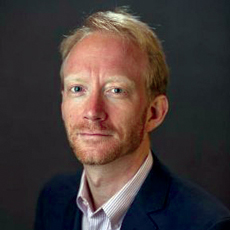
“A musician must make music, an artist must paint, a poet must write, if he is to be ultimately at peace with himself. What a man can be, he must be.” — Abraham Maslow
Abraham Maslow, best known for creating the hierarchy of needs theory, understood that we are born with passions and interests that bring us meaning and purpose. He also knew that when we are prevented from pursuing these things, we cannot be truly happy or feel whole.
It is a basic human right to have the opportunity to engage in our environment meaningfully each day, and the freedom to do this must be protected by providers who are serving older adults in our industry. Unfortunately, many communities inhibit this freedom — especially among those who are living with dementia such as Alzheimer’s disease — by using environmental, social, physical and even chemical restraints that can result in loneliness, helplessness and boredom.
The long-term care industry has made important progress made in decreasing the use of physical and chemical restraints. Physical restraints have become rare, with The Centers for Medicare & Medicaid Services reporting in 2015 that less than 1% of residents in U.S. nursing homes had been physically restrained in the last seven days.
On the other hand, chemical restraints remain a problem, even after the last 10 years of work by The National Partnership to Improve Dementia Care in Nursing Homes. Their efforts helped bring the national prevalence of nursing home residents receiving an antipsychotic medication from 23.9% in Q4 of 2011 to 14.6% in Q4 of 2018. But the national prevalence has plateaued. We should ask ourselves, “What is next?”
Restraints come in many forms, beyond just the chemical and physical ones. How we construct an environment, for example, can also be a restraint. Today, residents living with dementia such as Alzheimer’s disease most often live behind locked doors. Furthermore, the way we treat an older adult in our day-to-day interactions can act as a restraint.
Bill Thomas, M.D., coined the phrase “surplus safety,” referring to a situation in which a community removes any activities that may be considered too risky as a way to protect residents. Surplus safety can inhibit growth and development for older adults, leading to feelings of hopelessness and boredom. A better way forward is to find the right balance of autonomy and safety that is rooted in each resident’s unique risk tolerance and need of freedom.
Some providers make it a top priority to eliminate restraints of any kind and instead put resources into meaningful and person-centered engagement strategies. Kendal on Hudson, a life plan community in New York state, launched “Project Zero” in 2016, a campaign to reduce the unnecessary drugs to zero for residents in order to focus on the goal of “untying” the elderly. According to a Linked Senior case study, in just six months of using meaningful engagement as a key intervention, the organization was able to reduce antipsychotic drug use from 17% to zero.
Kendal on Hudson is an affiliate of the Kendal Corporation based in Kennett Square, PA. The Kendal Corporation embarked on its own restraint reduction initiative in 1986 with its “Untie the Elderly” vision. That led to federal legislation in 1990 requiring nursing facilities to consider the impact of restraint use on the wellbeing of residents.
One organization leading the way in this culture change movement is Pioneer Network which was founded in 1997 by a small group of prominent professionals in long-term care who were pioneers in changing the culture of aging, care and support. Another organization helping caregivers to nurture respect, dignity and well-being in the lives of older adults is the Validation Training Institute.
During Residents’ Rights Month in October, Linked Senior sponsored an “EngageAThon” competition with its clients and raised $500 for Pioneer Network to use in its effort to remove physical restraints being sold on Amazon.com.
Penny Cook, CEO and President of Pioneer Network, highlights the importance of such advocacy saying, “Pioneer Network has promoted and educated about individualized, person-centered care since its inception, ensuring that care and support is life-affirming and humane.”
Every older adult we serve has the right to be valued and respected so that they can find purpose. Research increasingly supports the efficacy of person-centered engagement strategies for supporting those living with dementia.
When our industry celebrates what older adults can do, rather than what their diagnosis prevents them from doing, restraints of all kinds are shattered — especially for those living with dementia — and a more meaningful and purposeful existence is unlocked. Honoring every older adult means validating who they are, which can be accomplished by acknowledging that finding meaning regardless of age or diagnosis is a basic human right.
Charles de Vilmorin is the CEO and co-founder of Linked Senior.





